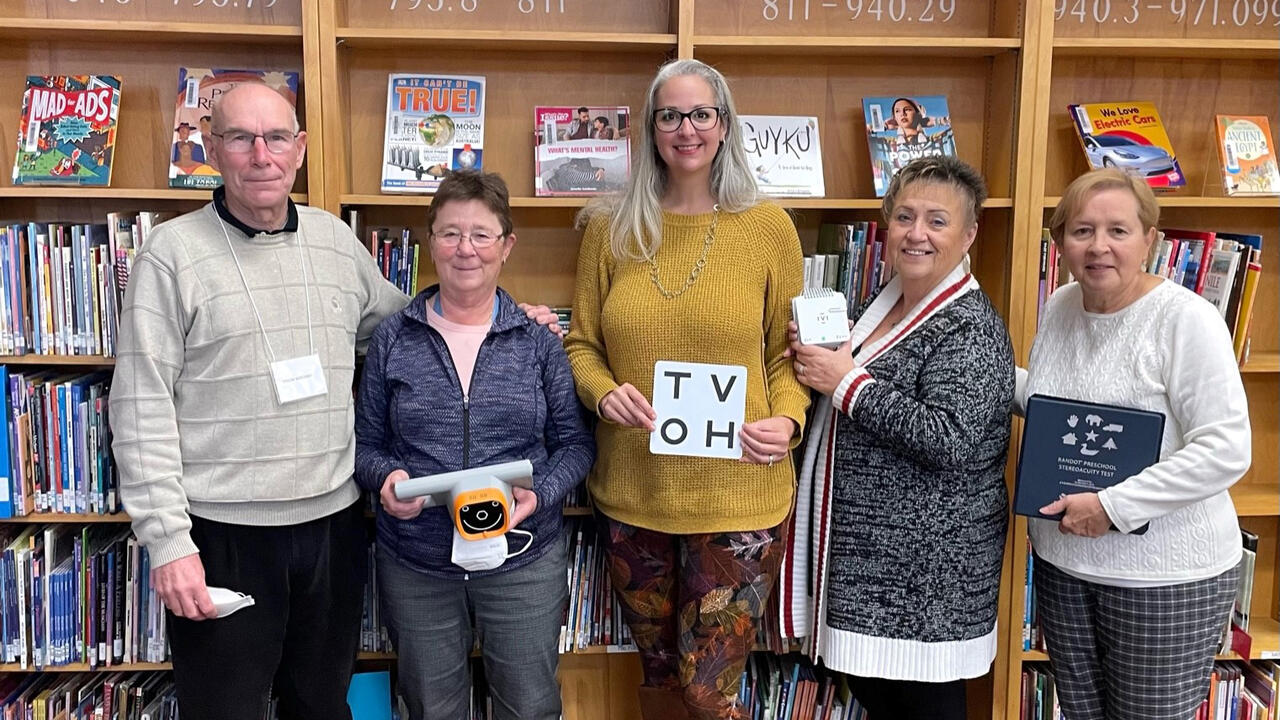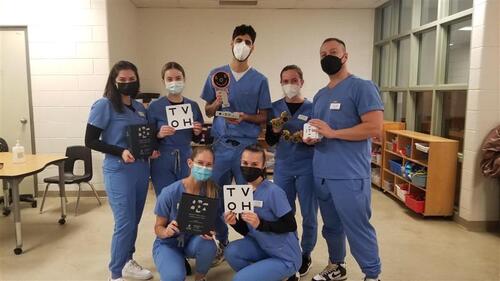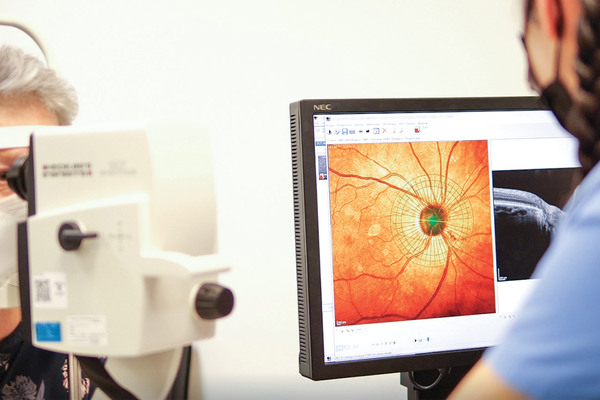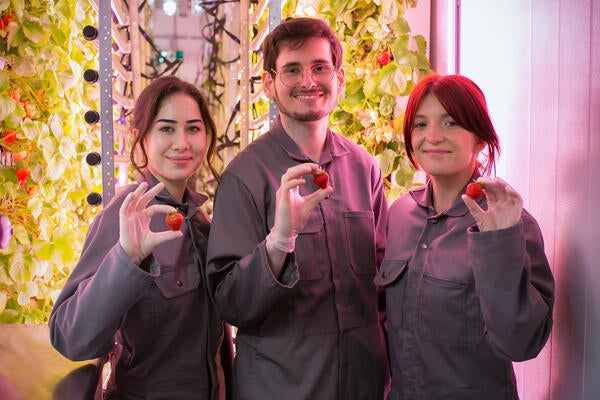
Helping children see by working together
Pediatric Vision Project partners with The Cowan Foundation and Lions Club of Canada

Pediatric Vision Project partners with The Cowan Foundation and Lions Club of Canada
By School of Optometry & Vision ScienceThe School of Optometry & Vision Science (UWOVS) is partnering with The Cowan Foundation and the Lions Club of Canada to develop a coordinated vision plan for the Region of Waterloo Public Health to screen every child in senior kindergarten (SK). This plan is to meet the 2018 Ontario Public Health Standards set by the Ministry of Health.
Recent studies in Canada have suggested that approximately 20 per cent of children aged 3 to 6 years have visual problems, such as amblyopia or clinically significant refractive errors. To ensure children have optimal vision for learning, this coordinated effort will focus on performing vision screenings for SK children, while simultaneously examining how they translate to full eye exams and the potential barriers in receiving optometric care.
“It is our goal to ensure that every child receives a full eye exam in kindergarten. By partnering with the Region of Waterloo Public Health, we will be able to identify the effectiveness of translating vision screenings to comprehensive optometric eye exams," says Dr. Lisa Christian, associate clinical professor and associate director of Clinical Programs in the School of Optometry & Vision Science. “Visual disorders can impact every aspect of a child’s life, including their ability to learn to their full potential.”
Christian is overseeing this partnership project with The Cowan Foundation and the Lions Club of Kitchener, both longstanding supporters of the University of Waterloo.
“We are very pleased to be working on this pilot project with equally passionate partners,” says Mary D’Alton, executive director of The Cowan Foundation. “This project will help address the gaps in vision care for children. This is part of the goal for The Cowan Foundation, to make a positive difference and enhance the well-being of our communities.”
“What we saw with this program was the opportunity to ensure no child is left behind when it comes to vision and its impact on learning,” says Kamran Farooq, president of the Lions Club of Kitchener. “We are excited by the possibilities for children who may otherwise struggle with their education without the intervention of these dedicated volunteers.”

School of Optometry and Vision Science student volunteers
The launch of the Pediatric Vision Collaboration Project will see Lions Club and Cowan volunteers, along with third and fourth year UWOVS interns, performing vision screenings to more than 6,000 SK children at 150 schools in the Waterloo Region. Following the screening, information will be sent home to parents recommending their child receive a comprehensive eye exam by an optometrist. The goal is to investigate the effectiveness of translating vision screenings to eye exams and the barriers in receiving optimal vision care. The next step after this will be to expand the project across other regions within Ontario and ultimately Canada.
In addition to promoting pediatric vision care, this project will expose UWOVS interns to interprofessional collaborations and the importance of detecting vision related learning problems. Optometry interns will see firsthand the potential gaps in pediatric vision care, which will inform their practice and partnerships as they enter the profession.
“Thanks to The Cowan Foundation and the Lions Club of Kitchener becoming project partners, we will be able to address vision concerns when children need it the most,” says Dr. Stanley Woo, director of the School of Optometry & Vision Science. “We are incredibly grateful for their support in seeing the launch of this project.”

Read more
IRIS commits $1 million to the Waterloo Eye Institute

Read more
Waterloo-led team tackles food insecurity through sustainable year-round berry production in Canada

Read more
Here are the people and events behind some of this year’s most compelling Waterloo stories
The University of Waterloo acknowledges that much of our work takes place on the traditional territory of the Neutral, Anishinaabeg, and Haudenosaunee peoples. Our main campus is situated on the Haldimand Tract, the land granted to the Six Nations that includes six miles on each side of the Grand River. Our active work toward reconciliation takes place across our campuses through research, learning, teaching, and community building, and is co-ordinated within the Office of Indigenous Relations.